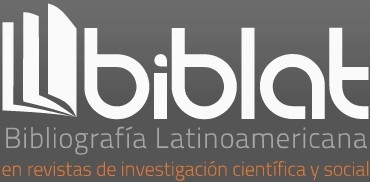An uncertain couple?
DOI:
https://doi.org/10.35494/topsem.2014.1.31.37Keywords:
transcendence/immanence, absolute values/universal values, concessive conditioning, event, knowledge/belief.Abstract
This article approaches the problem of immanence without separating
it from the original dichotomy of which it forms a part, both in philosophy and semiotics. Therein lies the question posed in the title, which casts doubt on the entire dichotomy. In order to answer this question and thereby contribute to the present project, this study develops the following hypothesis: transcendence is the boundary of accepted immanence. This concept can also be expressed in two different ways: one, positive and enunciated from the perspective of transcendence, in which transcendence would be considered to be the space that encompasses unresolved or poorly resolved difficulties in immanence; the other, negative and enunciated from the perspective of immanence, in which we would say that the lack of affective domain limits its rejection to the open space of transcendence. This approach emanates from tensive semiotics, in which everything can become a matter of degrees and tensions, a theory that views categories as the result of a correlation between domains, a diversifying, while not exclusionary, efflorescence. The immanence/transcendence relationship is simply an alternation that is dependent upon another deeper one, approached from the theory of value in semiotics: absolute values/universal values. It is, ultimately, the subject who evaluates, measures and relativizes the domain of transcendence in relation to immanence; via the latter’s analysis operations, the dimensions of transcendence, be it intensity, extensivity, gain and lose the capacity to be analyzed.
Downloads
References
ARISTÓTELES (2000). Poética. Introducción, versión y notas de Juan David García Bacca. México: UNAM.
ARISTÓTELES. Retórica, 1404b [Disponible en: http://www.philosophia.cl/biblioteca/aristo- teles/poetica.pdf].
CASSIRER, Ernst (1976). La filosofía de las formas simbólicas, t. III, México: FCE.
CASSIRER, Ernst (1989). Langage et mythe. París : Les Editions de Minuit.
DE MONTAIGNE, Michel. Ensayos, I, cap. 25 [Disponible en: http://www.cervantesvirtual. com/obra-visor/ensayos-de-montaigne-0/html/fefb17e2-82b1-11df-acc7-002185ce6064_157.html#I_27_].
DESCARTES, René (1993). "Orden y enumeración de las pasiones". En Las pasiones del alma (Artículo 53: "La admiración"). Trad. de Consuelo Berges. México: Conaculta.
HJELMSLEV, Louis (1972). Ensayos lingüísticos. Trad. de Elena Bombín Izquierdo y Félix Piñero Torre. Madrid: Gredos.
HJELMSLEV, Louis (1978). La categoría de los casos. Trad. de Félix Piñero Torre. Madrid: Gredos.
HJELMSLEV, Louis (1974). Prolegómenos a una teoría del lenguaje. Madrid: Gredos/Biblioteca Románica Hispánica.
RICŒUR Paul (2001). La metáfora viva. 2a. ed. Madrid: Ediciones Cristiandad/Trotta.
SAUSSURE, Ferdinand de (2001). Curso de lingüística general. Buenos Aires: Losada.
VALÉRY, Paul (1973). Cahiers, t. I. París: Gallimard (collection La Pléiade).
WEBER, Max (s/f). "La ciencia como vocación". En El político y el científico [Disponble en http://www.hacer.org/pdf/WEBWR.pdf].
ZILBERBERG, Claude (2012). La structure tensive. Lieja : Presses Universitaires de Lieja. Trad. al español de Desiderio Blanco, Universidad de Lima].
Downloads
Published
How to Cite
Issue
Section
License

Tópicos del Seminario is licensed under a Creative Commons Reconocimiento-NoComercial-CompartirIgual 4.0 Internacional License.














